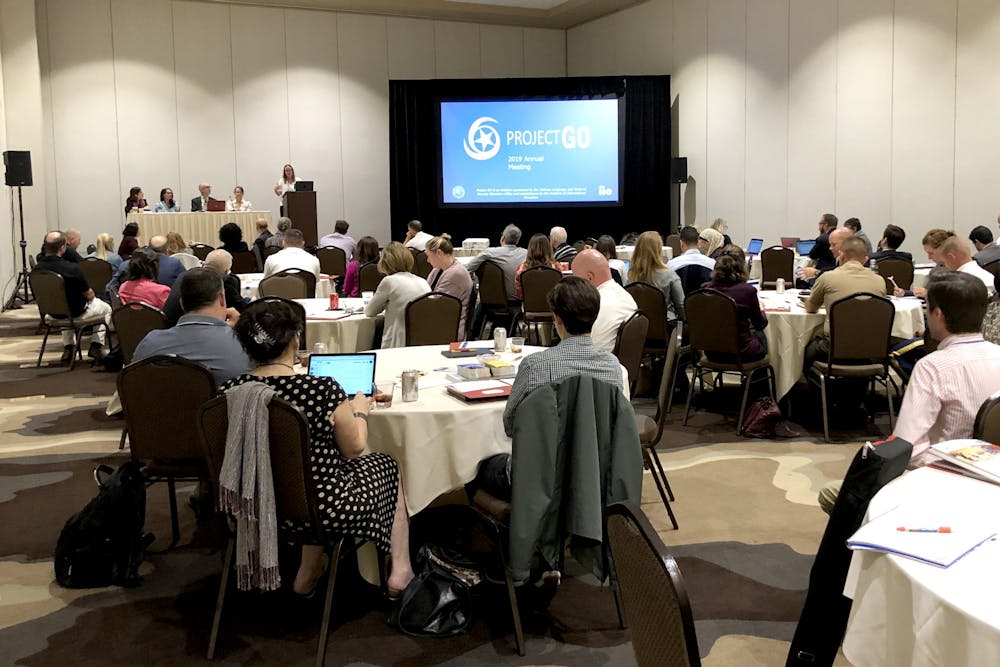Students and leaders from around the nation gathered in Mesa to discuss ROTC cadet transitions from school to the military on Tuesday afternoon at the annual leadership meeting of Project GO.
The Sheraton Mesa Hotel at Wrigleyville West hosted the event on Oct. 28 and 29 and included representatives from all 25 universities that participate in Project GO.
Project GO is a program that allows ROTC students to travel to different countries in order to immerse themselves in other cultures and learn different languages.
“Everything is unfamiliar to you at first, you’re timid, ” said Javier Bustos Maldonado, a senior studying interdisciplinary studies.
He had the opportunity to study in Indonesia through Project GO.
“The idea is to have future military officers with skills of cultural awareness and good cohesion with allied countries and maybe places that aren’t allies,” Bustos Maldonado said.
The meeting was hosted by the ASU Melikian Center, which focuses on Russia, Eurasian and East European Studies.
Keith Brown, director of the Melikian Center, said one of the main goals of the meeting was "that everyone goes out of here thinking about transcontinental communication."
Project GO is a scholarship program funded by the Department of Defense and covers tuition, flights, room and board — usually with a host family — and visa expenses while participants are abroad.
The project provides a number of opportunities to study languages including Russian and Indonesian in other countries, as well as options to study within the U.S.
Students who participate in Project GO with ASU are trained through an intensive language learning program through the Critical Languages Institute before studying abroad.
“In Bali, we did about 4 to 5 hours of language learning each day and then you have different types of cultural training,” Bustos Maldonado said.
Some of the cultural training that Bustos Maldonado went through in Indonesia included dancing and martial arts.
“We got to such a good proficiency level with our language that we were like local celebrities with the shop owners,” said Bustos Maldonado.
Another goal of the meeting was to focus on culture shock and reverse culture shock, which can happen when students come back to the United States after studying abroad.
Leeann Chen, who works with Project GO students at Embry-Riddle Aeronautical University, said during the meeting that she invites "all the students to (her) house and will make them dinner after they return to the United States" to help them debrief.
Bustos Maldonado said his host family helped him adjust to the Indonesian culture and he didn’t experience much culture shock because of them.
The meeting was also aimed to teach students the bigger picture of working with various countries if they were to get deployed in the future.
“We didn’t want to come back (to the U.S.) because we were just living it up,” Bustos Maldonado said.
Reach the reporter at jtlewis4@asu.edu and follow @lewisjake24 on Twitter.
Like The State Press on Facebook and follow @statepress on Twitter.




